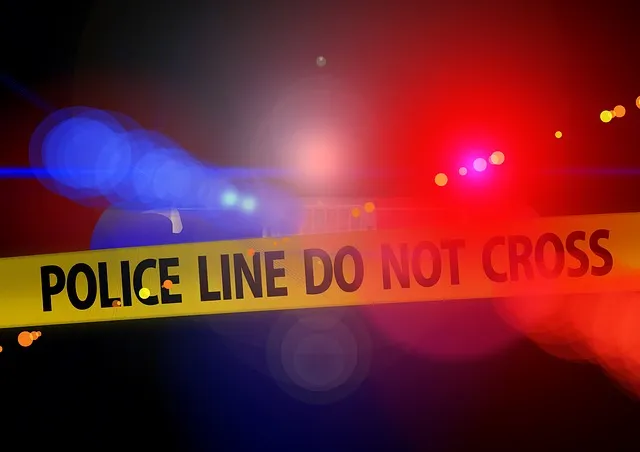
In the aftermath of every police brutality incident, several responses are commonplace. I would like to take a moment to address these sentiments so we can discard the nonsense and strive toward a real solution. This issue has many layers, and while the usual comments fit on a bumper sticker, serious discourse requires a wordier response.
My opinions below are likely to engender feelings of anger, but I ask readers to take this opportunity to examine the issue at hand calmly and rationally when everyone is diving into emotion-fueled rhetoric. There can be no meaningful discussion of reform unless the root issue is laid bare first.

"Not all cops are like that, it's just a few bad apples."
The proverb is, "one bad apple spoils the whole bunch." Police departments do not appear to be policing themselves, and the officers who repeatedly abuse the people they claim to serve go unpunished, receive laughably empty punishments, or just get shuffled to another department if their misconduct cause too much embarrassment.
The "thin blue line" us vs. them adversarial perspective adopted by many police officers inevitably results in disdain for us mundanes, and a culture where police protect all but the worst offenders within their guild. There seems to be an attitude of an occupation army rather than public service.
If I am to believe there are good cops, they need to weed out the bad cops in their midst immediately and aggressively. No more punishment of whistleblowers and people reporting concerns to internal affairs. That is a bare minimum standard.

"If you don't like the cops, next time you're in trouble, call a crackhead!
The concept of a property protector and security provider who is paid by theft and enforces laws against non-crimes is inherently self-contradictory. Telling a critic to "call a crackhead" is even worse than a non-response, though, but an admission that police operate as a monopoly.
Monopolies promote waste and abuse. There is no incentive to innovate and assure consumer satisfaction when the consumer is compelled to pay whatever is demanded, and must accept the bare minimum provided in exchange. The police structure today takes this already problematic incentive structure and places it in a position where law enforcement exists to satisfy the demands of the lawmakers, not the citizenry.
Police have no legal obligation to protect anyone. the extralegal principle of qualified immunity shields police from prosecution in most cases of abuse. the Law Enforcement Officers' Bill of Rights creates a separate standard of evidence and investigation from that they impose on the rest of us.
So what does it really say when the best alternative you can propose to the present system is calling a crackhead?

"You can't criticize the cops unless you're ready to put on that badge yourself!"
I do not have any experience in law enforcement or private security. I freely admit that. However, the lack of personal experience does not disqualify me from offering a reasoned opinion. You don't need to be a carpenter to complain when a partition wall is crooked.
I can observe the laws as they are enacted and enforced using the philosophy of liberty as a measuring stick. I can study the history of psychological experiments regarding authority, power, and group influence. I can read about the effects of past efforts in reform, and weigh the results against the promises.

Concluding Thoughts
The psychological incentives of power, the economic incentives of monopoly, the social incentives of the police clique, and the legal incentives of special privileges and protections combine to create the perfect storm of incentives toward brutality.
The political class created the earliest police forces to forcibly retrieve runaway slaves in the antebellum south, and to enrich the political organizations in the North like Tammany Hall by turning gang warfare into a moneymaking control scheme. The goal was never promoting liberty, but imposing law and order according to the whims of authoritarian sociopaths.
While liability insurance, ending qualified immunity, and punishing more corrupt cops would help in the short term, such efforts do not work toward the true systemic change needed.
We do have some glimpses of alternatives that could exist. In the US, the sheriff is in theory an elected official whose duty is to the general populace, not another layer of politicians. Some sheriffs do seem to take this idea seriously, and despite still having the adverse incentives of a coercively-funded monopoly, still retain a closer idea of responsibility to the people. the Threat Manangement Center of Detroit offers a possible model for a voluntarily-funded police-like security service that places the community's needs instead of legislative mandates as its core mission. Innumerable other models may exist only in the minds of entrepreneurs who should be free to offer services on a voluntary market.
Opposition to police does not mean wanting blood in the streets and a life lived in fear of gang violence. It is, in fact, opposition to institutionalized gang violence enforcing arbitrary laws that create violent black market gang violence. While many protests do turn into riots and mindless violence, there is almost always a germ of legitimate grievance at the root, so remember to protest with purpose.
We can do better, but not by half-measures or cosmetic "reforms." When the police respond to protests with tear gas, fire hoses, rubber bullets, or live ammunition, that should stand on its own as an indictment of the system as it is today. It cannot be defended by a compassionate, liberty-oriented society.
If you disagree with my analysis or conclusion, feel free to comment below.


